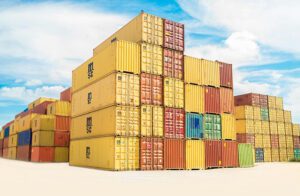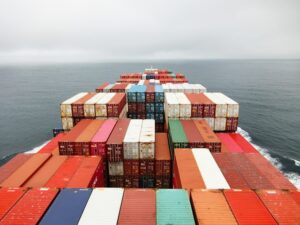In an ongoing effort to disrupt Russia’s ability to sustain its military operations, the U.S. Department of the Treasury announced nearly 300 new sanctions on May 1, targeting Russia’s military-industrial base and third-country support. These measures are part of a broader multilateral campaign aimed at limiting the Kremlin’s resources and access to essential materials necessary for its war against Ukraine.
New sanctions focus on entities involved in Russia’s military-industrial complex, as well as those supporting its chemical and biological weapons programs. Additionally, individuals and companies in third countries—China in particular—are being targeted for their role in aiding Russia’s acquisition of crucial technology and equipment. More specifically, the Treasury Department’s measures on Wednesday included sanctions against almost 60 entities situated across such third countries as Azerbaijan, Belgium, China, Turkey, the United Arab Emirates, and Slovakia.
Treasury Secretary Janet L. Yellen emphasized in Wednesday’s press release the significant consequences for companies providing material support to Russia’s war efforts: “Today’s actions will further disrupt and degrade Russia’s war efforts by going after its military industrial base and the evasion networks that help supply it.”
Following this effort, the Department of State imposed sanctions on entities and individuals engaged in sanctions evasion, circumvention. Furthermore, actions are being taken against those connected to Russia’s chemical and biological weapons programs, Russia’s revenue generation through future energy projects, with additional sanctions related to the death of opposition leader Alexey Navalny.
The Department of Justice filed a forfeiture complaint against aircraft landing gear purchased for the benefit of a Kyrgyz Republic-based transhipper servicing the Russian Federation, in violation of U.S. sanctions.
Treasury’s efforts extend beyond direct sanctions on Russian entities, targeting those facilitating Russia’s acquisition of technology and equipment. Approximately 60 targets in various countries, including China, have been identified for enabling Russia’s procurement of essential technology and equipment.
The sanctions also focus on disrupting Russia’s acquisition of explosives precursors, such as cotton cellulose and nitrocellulose, which are vital for producing gunpowder and rocket propellants. Entities involved in supplying these substances to Russia are being sanctioned, further impeding Russia’s military capabilities.
Furthermore, measures are being taken against entities involved in natural gas-related construction projects, aligning with commitments made by President Biden and G7 leaders to limit Russia’s energy revenues and impede its future energy projects. See ‘Expansion of Russia’s natural gas infrastructure’ chapter.
Overall, these sanctions represent a concerted effort by the U.S. and its international partners to degrade Russia’s military-industrial base and impede its ability to sustain aggression in Ukraine.














